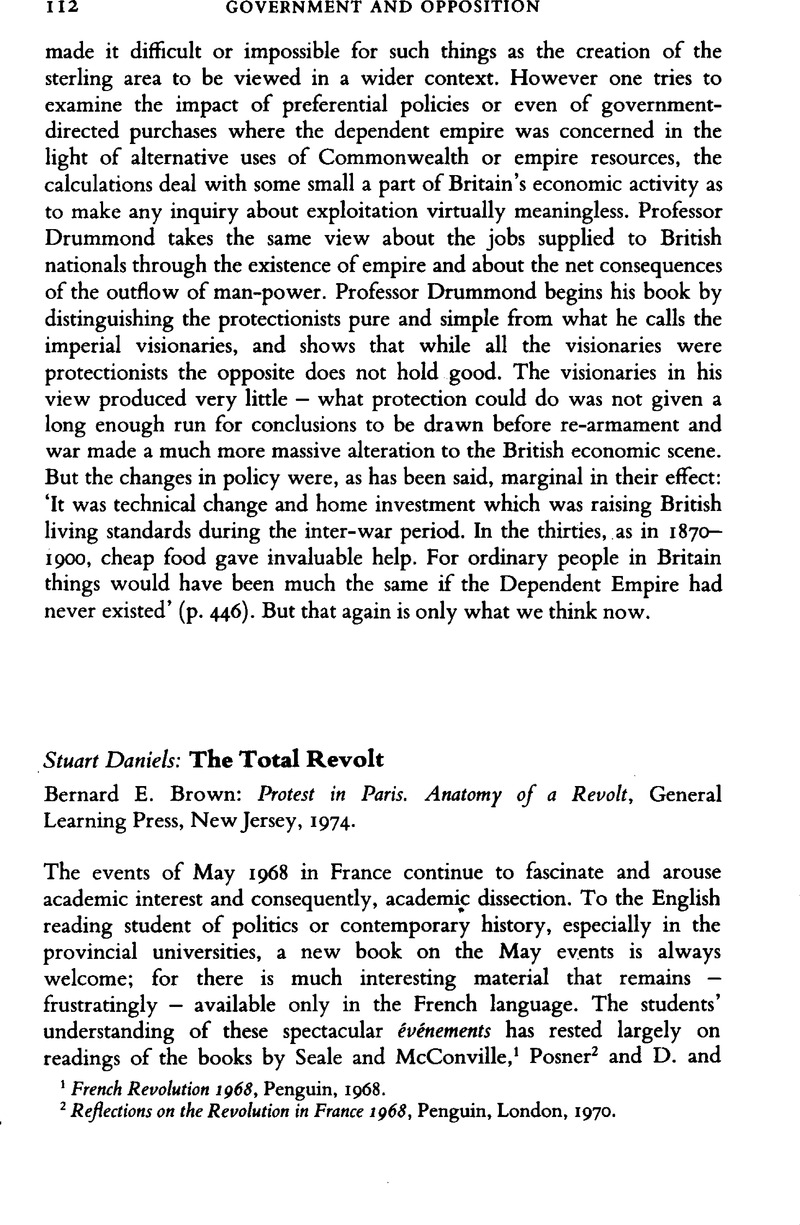No CrossRef data available.

1 French Revolution 1968, Penguin, 1968.
2 Rejections on the Revolution in France 1968, Penguin, London, 1970 Google Scholar
3 Obsolete Communism: Left Wing Alternative, Penguin, London, 1969.Google Scholar
4 The Elusive Revolution: Anatomy of a Student Revolution. New York, 1969.Google Scholar
5 Prelude to Revolution. France in May 1968, Cape, London, 1971.Google Scholar
6 Students and Workers: An Analytical Account of Dissents in France. May-June 1968, Macdonald, 1969.Google Scholar
7 Action–Image of Society, Tavistock, London, 1970.Google ScholarPubMed
8 ‘The Ideology and Practice of Contestation seen through Recent Events in France’, Government and Opposition, 5, 3, pp. 41–29.Google Scholar
9 ‘All you need is love, love. … Love is all you need.’ The Beatles
10 ‘Yes I think the time is right For violent revolution, From where I live the game they play is compromised solution’ The Rolling Stones. Beggars Banqent LP
11 The Angry Brigade.
12 The Baader–Meinhof group
13 The Weathermen
14 Later to be paralleled in the pop–music sphere by the killing of a member of the audience at a Rolling Stones concert in Altamont by the hired security guards — Hells Angels.
15 Is There were few of the ‘back-to-the-earth’ ideas which were to play a large part in the Revolt in America in the late 1960s. ‘It is clear that the prototype of fascism for Gregor remairis throughout – and despite the vast sco e over which the paradigm has been extended by the end of the book - the fascism of Mussolini's Italy. To see Mussolini's regime as the unacknowledged model for modern history has an air ot pleasantly depreciatory mockery. To offer Nazi Germany in such a guise would, by contrast, be well beyond a joke.